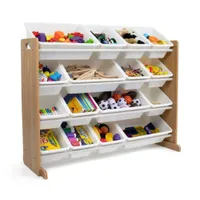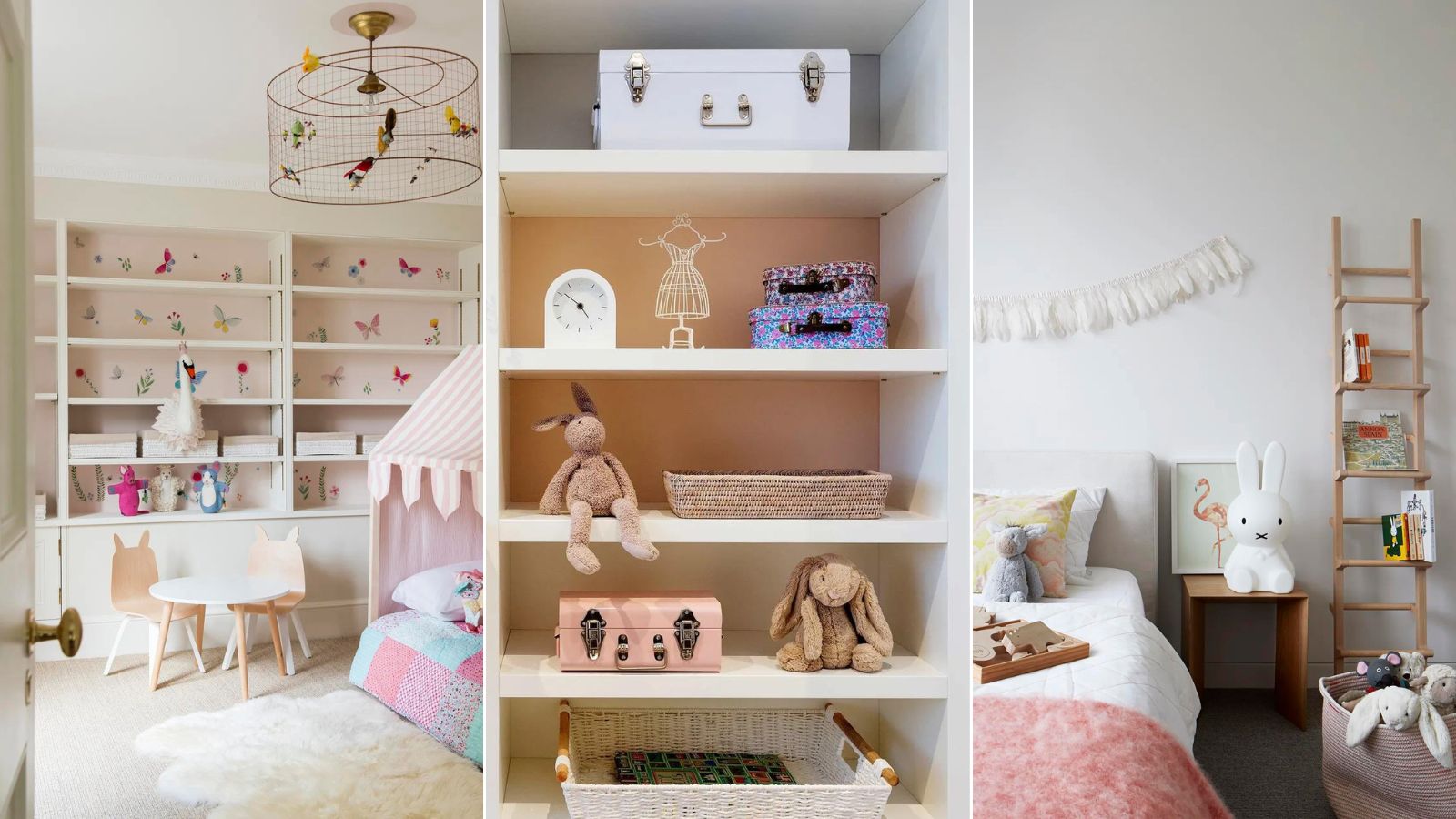
Design expertise in your inbox – from inspiring decorating ideas and beautiful celebrity homes to practical gardening advice and shopping round-ups.
You are now subscribed
Your newsletter sign-up was successful
Want to add more newsletters?

Twice a week
Homes&Gardens
The ultimate interior design resource from the world's leading experts - discover inspiring decorating ideas, color scheming know-how, garden inspiration and shopping expertise.

Once a week
In The Loop from Next In Design
Members of the Next in Design Circle will receive In the Loop, our weekly email filled with trade news, names to know and spotlight moments. Together we’re building a brighter design future.

Twice a week
Cucina
Whether you’re passionate about hosting exquisite dinners, experimenting with culinary trends, or perfecting your kitchen's design with timeless elegance and innovative functionality, this newsletter is here to inspire
Nagging is one way to get kids helping out at home, but introducing children to the concept of chores so they’re seen in a positive light, rather than a negative, is much more likely to inspire a helpful attitude. Not just now, but into their adult years, too.
Before you start handing out to-do lists, it’s important you organize your home with kids in mind, so any task is age-appropriate and easy to complete. Remember, the end goal is not the ‘chore’ itself, but to instill a sense of confidence in your kids, as well as clutter-free habits going forwards.
‘Children raised in households where everyone helps out tend to become adults who understand the benefits of taking responsibility around the house and reap them readily. You’ll likely be met with resistance at first, but keep in mind the three Ps; ‘persistence’, ‘patience’ and ‘praise’ – lots of it!’, says Gabriella Dyson, Head of Solved, Homes & Gardens.
How to introduce children to the concept of chores
Much like encouraging your family to declutter, encouraging your children to help with chores when they're not used to the concept can feel like a, well, chore! Here's our top tips for ensuring everyone's happy to help out.
1. Encourage teamwork
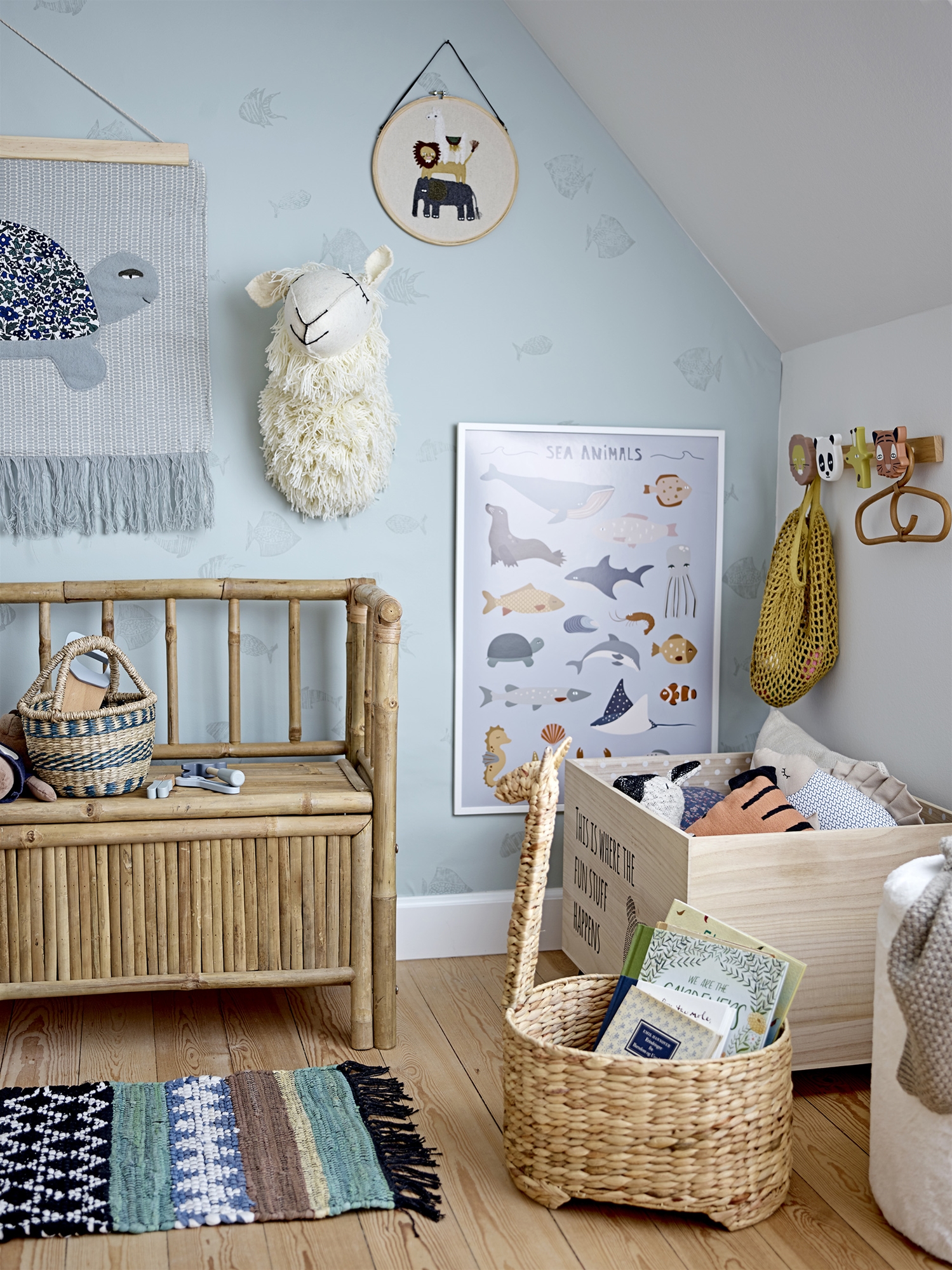
It’s important you spread chores fairly across the family. Tasks will of course vary depending on age but everyone should be contributing; you wouldn’t expect a two year old to load the dishwasher properly but they’re capable of keeping their toy storage ideas tidy, for example.
‘It’s not fair to expect any one person to do all the work, everyone needs to pitch in. Hold family meetings on a weekly basis to plan a schedule and work as a team; if someone has a busy week with activities or homework, they can pick up more tasks over the weekend, or the following week. This creates a supportive family dynamic, where offering help comes naturally and without obligation’, says Jessica Litman, creator of The Organized Mama.
Design expertise in your inbox – from inspiring decorating ideas and beautiful celebrity homes to practical gardening advice and shopping round-ups.
2. Keep tasks simple
Just like adults, children can feel overwhelmed by trickier household tasks. In the interests of boosting their confidence, ensure an achievable cleaning routine by sticking to simple tasks.
Take organizing a kid’s bedroom, for example; breaking it down into smaller steps (sort clothes for laundry, organize toys, make the bed etc) makes everything feel a little bit more manageable’, says home organizer Laura Price, founder of The Home Organisation.
The more success they have, the more likely they are to want to continue. As time goes on and they become more confident in their ability, you can start to increase their responsibilities.
Aaban Toy Organizer | $112.99 at Wayfair
We love this toy organizer, as it helps keep the chaos under control and is low enough for little ones to organize their toys themselves.
3. Offer a helping hand…
Don’t assume your child knows how to do the chores you give them, even if it may seem simple to you – we all started somewhere! Whether it’s how to declutter toys or how to clean a bathroom, walk them through each task step by step and offer support if they need it.
4. … but don’t finish the job for them
We all have our cleaning non-negotiables, so it can be tempting to take over if you feel your child isn’t meeting them. However, this is the last thing you should be doing if you’re trying to encourage your family to clean around the house.
‘Not only does this send your child a wrong, ‘non-collaborative’ message, but they’ll never learn the right way if you keep finishing the job for them. Gently draw their attention to where they've missed the mark, and be sure to pile on the praise when they do get it right', says Lucy Searle, Content Director, Homes & Gardens.
5. Be flexible
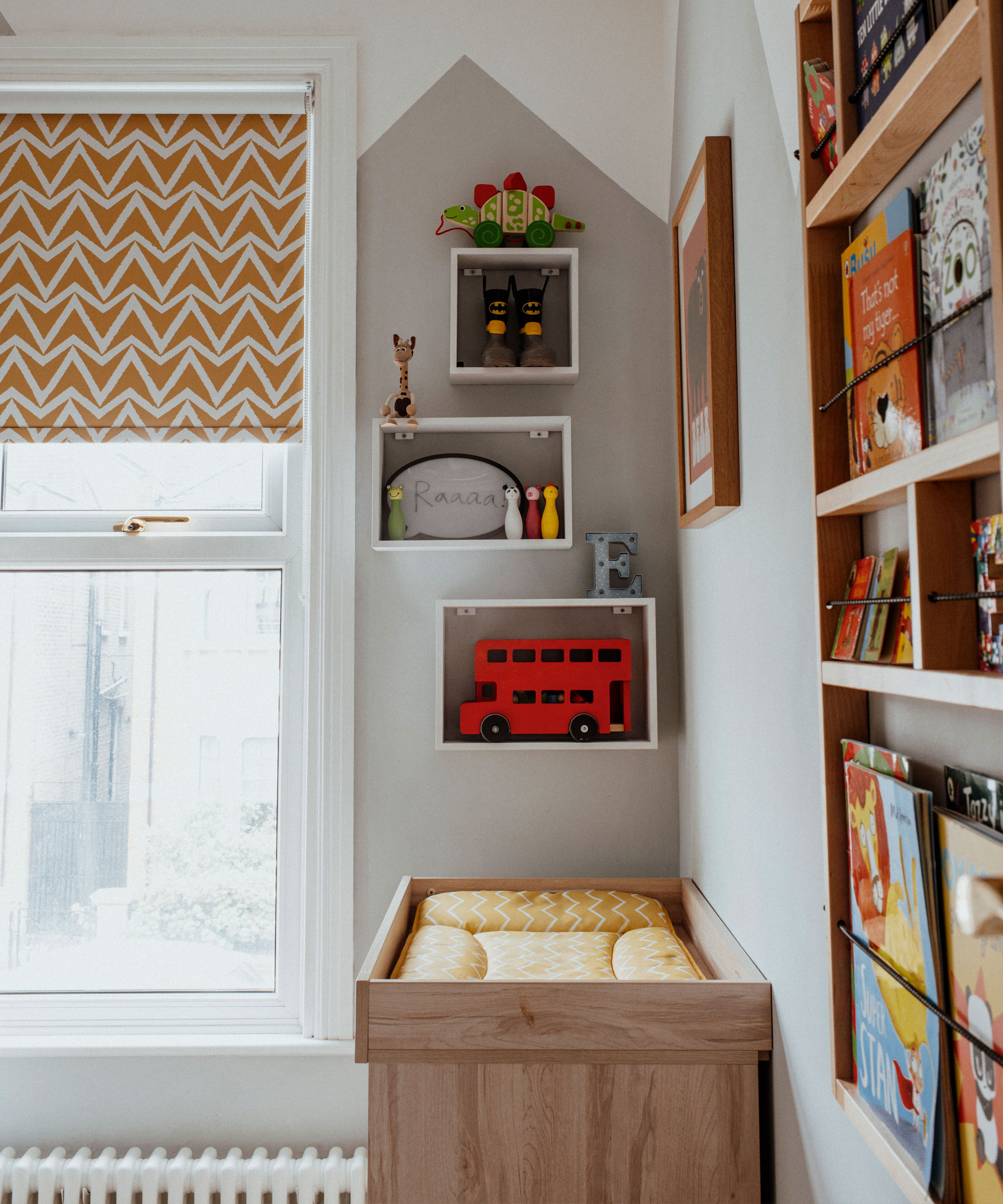
It’s tough, we know, but avoid forcing your children to do chores. Remember, the ultimate aim is not to get the chore done, but to encourage responsibility and a desire to contribute.
‘A little resistance is normal, but if you’re consistently being met with it, try giving your child a choice of which tasks to do and when to do them. Have a chore chart at the ready (like this one, from Walmart), and encourage them to tick them off as they get done. This will give them a sense of ownership, as well as teaching important time management skills’, says Gabriella.
It’s a good idea to assign chores at the beginning of the week, so your child has plenty of time to complete them. Stick to this routine so they know what to expect each time.
6. Lead by example
Kids tend to mirror their parent’s behaviors, so check your own attitude towards chores. If you have a tendency to put them off, your child likely will, too. Set a good example by sticking to a consistent routine and appearing upbeat – even if you’re not feeling it inside!
‘Don’t feel like you must until your children are in bed or in front of the tv to start working through your to-do list. I prefer my children to see me doing jobs around the house, and I always get them involved where I can. They often help me with wiping the table, sweeping the floor and have even argued over who gets to use the handheld hoover!’, says professional organizer and childcare expert, Kathryn Lord.
7. Keep things fun

Weeding the garden, washing up dishes, pairing up socks… they may be chores to you, but to a younger child, these can be great entertainment! Choose activities that engage their interests and let them know they’re helping you out in the process.
As your child gets older, think about ways you could make cleaning fun. Create a party atmosphere by sticking on some music, or create games where they can earn points.
Who can throw the most dirty clothes into the laundry basket, or roll up clean ones up ready to be put away? Award points as you go, or try setting a timer and seeing who can finish the fastest’, says Kathryn.
8. Find creative ways to motivate
‘Chores don’t have to be boring – try tapping into your child’s natural creativity to make mundane tasks feel more rewarding.
‘My son is really into superheroes, so I let him draw pictures of himself as a ‘The Tidy Tornado’ on his own cleaning caddy (opt for light and bright designs, like these from Amazon). He was so proud of his unique tools, it boosted his enthusiasm – and his imagination!’, says Steve Au (and dad of two), founder of Scribble Art.
9. Recognize a job well done
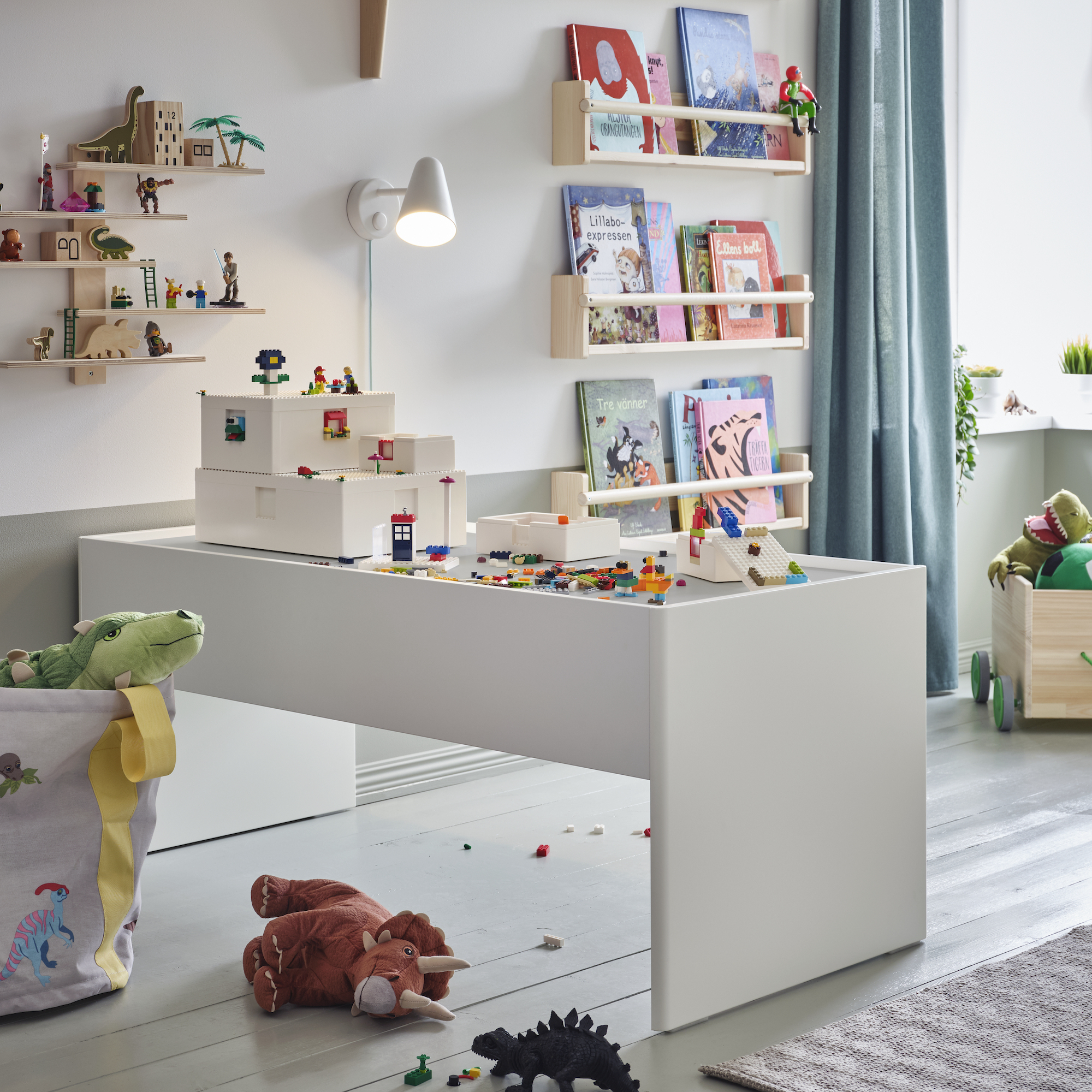
When asking your child to help, be sure to approach them in the same way you’d expect them to approach you – politely. Most experts advise against using a reward system (chores are a part of everyday life, after all) but be sure to show verbal appreciation after your child has completed a task of any kind.
‘Rather than focusing on the chore itself, compliment their hard work, or their cheerful attitude – any attribute they demonstrated that you’d like to encourage for next time’, says Gabriella.
FAQs
At what point should children begin doing chores?
It’s never too early to introduce your children to the concept of chores, but it’s important you’re realistic about what to expect depending on your child’s age.
‘Toddlers (ages 2-3) will need a lot of guidance and supervision with their chores. Stick to simple and safe tasks, such as putting away toys, wiping spills and piling up books’, says professional organizer (and mum of two) Lauren Saltman, founder of Living. Simplified.
‘Preschoolers (ages 4-5) are able to remember more detailed instructions. Build on what they started as a toddler (they can accomplish these chores on their own now) and increase their responsibilities; dishes next to the sink, making their own bed, matching socks and feeding the family pet are all good examples.
When your child reaches school age they should be able to complete tasks expected of them without constant reminders, and by high-school they should be just as capable as you!’.
It can be difficult to get motivated to clean whatever age you are, but chores are a part of life – they need to be done. By introducing children to the concept of chores early on, you’re teaching them positive and productive habits that will see them maintain a happy, well-managed home of their own one day. They may not thank you for it now, but rest assured, they will then!

For 10 years, Tara King worked as a Content Editor in the magazine industry, before leaving to become freelance, covering interior design, wellbeing, craft and homemaking. As well as writing for Ideal Home, Style at Home, Country Homes & Interiors, Tara’s keen eye for styling combined with a passion for creating a happy – and functional – family home has led to a series of organization and cleaning features for H&G.

